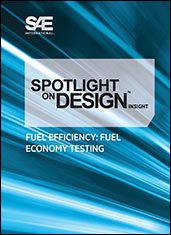Training / Education
Applied Brake Controls Test Track Experience ABS, TCS, and ESC
Take notes. Take a spin. Repeat. Six classroom modules (2 each for ABS, TCS and ESC!) are paired with six driving modules on a real-world ice and snow development test track in the Upper Peninsula of Michigan. There's no better way to reinforce classroom learning than by grabbing the steering wheel. All of the driving exercises have been specifically developed so that anyone can hop in the car and immediately link what you have just learned in the classroom.



